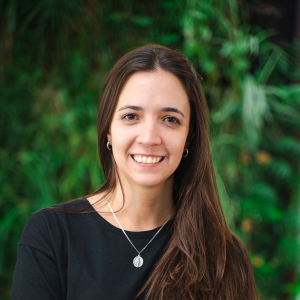I’m writing this article to tell about my experience as Head of HR at Rather Labs, a blockchain consultancy firm.
Searching for blockchain profiles is a very complex task, in this article I will tell you some technical aspects related to the candidate’s profile that will help you to make more effective use of the search tools and to evaluate in a better way when you are looking at a potential candidate’s CV.

1— It is one of the most desirable and best paid cutting-edge profiles in the Fintech field.
The benefits of blockchain technology are undeniable as it increases trust, security, transparency, and the traceability of data shared across a business network — and delivers cost savings with new efficiencies.
This trust in Block transactions is based on their increased transparency and instant traceability. In addition, blockchain offers even more business benefits, such as cost savings through increased speed, efficiency, and automation. It significantly reduces both overheads and transaction costs and gives the possibility to reduce or eliminate the need for third parties or intermediaries to verify transactions.
Blockchain technology enables the implementation of a distributed, public and immutable database based on a growing sequence of blocks. This database inherently provides node fault tolerance, robustness against manipulation, and, being public, transparency.
Decentralized finance (DeFi) eliminates intermediaries by allowing people, merchants, and businesses to conduct financial transactions through emerging technology. This is accomplished through peer-to-peer financial networks that use security protocols, connectivity, software, and hardware advancements.
The phenomenon of “tokenization” — through the blockchain tokens, understood as key elements in the digital economy, can be traded — a blockchain can record information about cryptocurrency transactions, ownership of NFTs — Not Fungible Token — or DeFi smart contracts. This has been seen as a response to the search for a more decentralized, less bureaucratic, more liberal economic model with more direct user participation
2— Developing a project that includes Blockchain technology is more complex than looking for a “Developer in Solidity”.
Solidity is a high-level programming language product of the evolution of industry standards, but different languages can be used to program smart contracts in Blockchain. As a language that was born on the basis of JavaScript, Powershell and C++, it has turned its attention to smart contract programming and is now an industry standard.
The developer at Solidity must also apply technical standard ERC20; this is used for all smart contracts on the Ethereum blockchain for token implementation and provides a list of rules that all Ethereum-based tokens must follow.
To successfully develop a blockchain project, many teams tend to prefer to use programming languages that integrate the connection and interaction with a blockchain network, for example using JS or Python, while the most widely used language for developing contracts on the blockchain is Solidity, of course as long as we are in EVM (Ethereum Virtual Machine).
Another language that is also successfully used for development is Rust, given that different types of blockchains are appearing where the aim is to improve performance in general, such as, for example, the Nervos or Solana blockchains.
3— A Solidity developer must be responsible for several tasks, so profiles from Senior upwards are more than desirable.
When we list the skills that should accompany our potential blockchain developer candidate, we should not forget web3 technologies; and, for example, knowledge of frameworks such as React JS, Angular JS, among others.
In other words, the developer must not only be able to develop the contracts, but also to integrate the website. Ideally, the developer should also be able to run QA tests on the smart contracts.
Due to the characteristics of this kind of profile, it is desirable to have a team specifically dedicated to finding the ideal candidates.
It is important that the challenges applied to candidates are specifically designed to assess the developer’s expertise in blockchain, based on the languages and technologies that converge.
And let’s not forget that in our candidates’ profile it is a must to have an interest in constantly updating their knowledge because this technology is constantly evolving and disrupting.
We hope this article has cleared up your doubts about why it is extremely challenging to find Blockchain talent.
- For retail consulting, contract staffing, and talent acquisition services for all kinds of IT sector needs, contact us at https://ratherlabs.com/.
Jordan Veronica Pilar — Head of HR at Rather Labs Inc.





.avif)
%204.svg)










